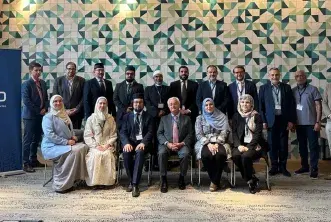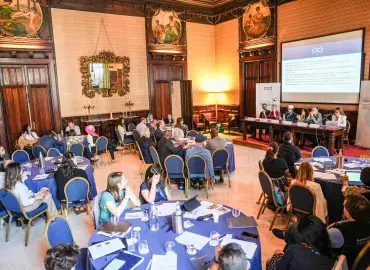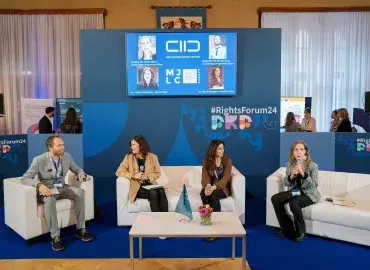Young Voices of Hope in Times of Division
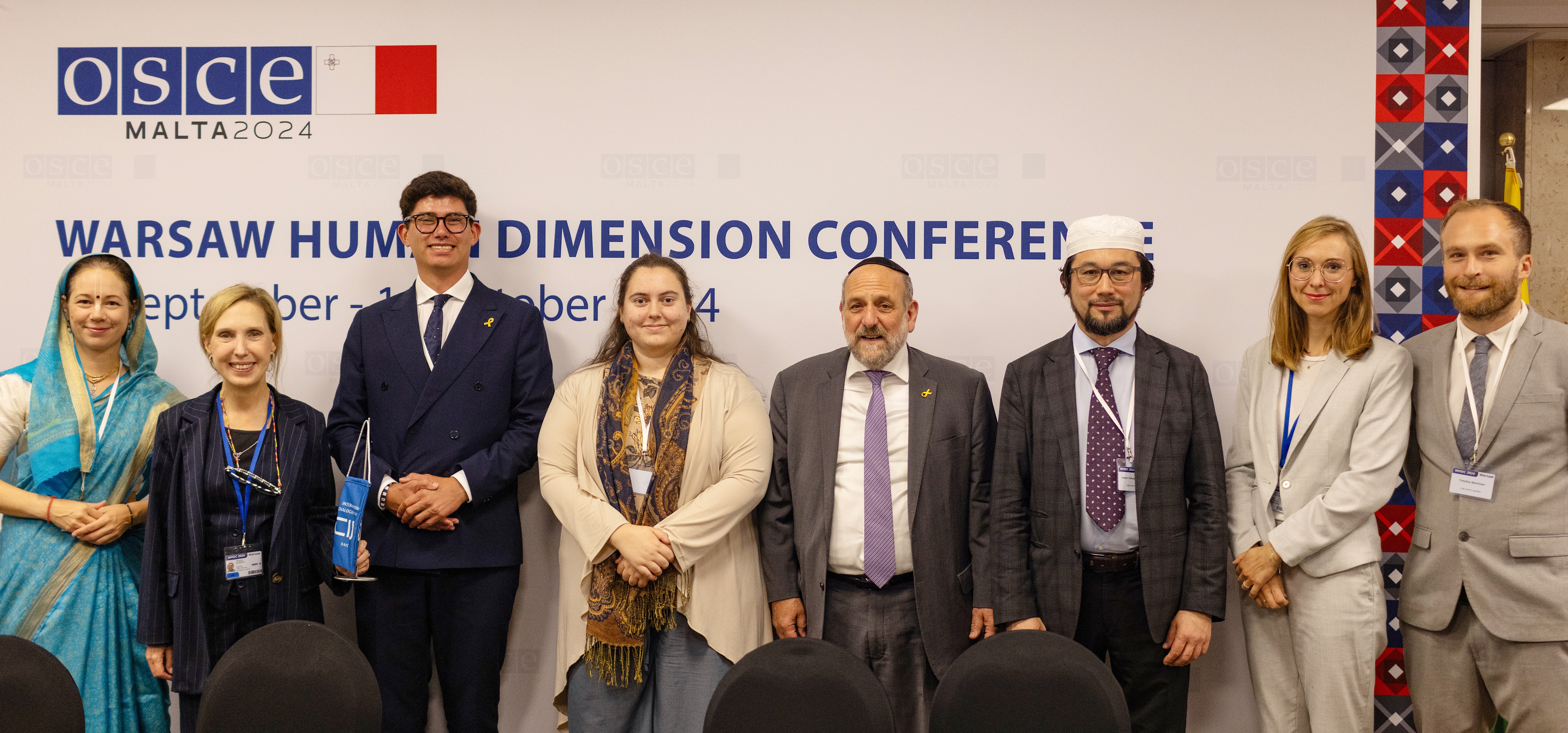
How Often Do We Really Listen?
In discussions about dialogue, our thoughts typically turn to what will be said, the arguments made, and the positions debated. Yet, the essence of genuine dialogue is not in the speaking but in listening, creating a space for the other, making room for what matters to them. It requires a "righteous effort" to understand the world from their perspective, with an empathetic focus toward the other.
This was the spirit of the Young Voices of Hope in Times of Division event held on October 8 at the Warsaw Human Dimension Conference, organized under the 2024 Maltese OSCE Chair and with the support of the OSCE Office for Democratic Institutions and Human Rights (ODIHR).
In this distinguished forum on human rights in Europe, KAICIID brought forward two young community leaders: one Jewish and one Muslim, both in their mid-twenties and both doctors who trained at the same university. These young leaders—a man and a woman—face the daily challenge of guiding individuals along the delicate path between life and death. Together, they are running a shared initiative to improve the religious literacy of healthcare professionals in Milan - Italy, aiming to enhance care for local minority faith communities. They confront this demanding environment with the strength of their faiths, united by a shared mission to uphold human dignity, offer empathy, and view each person's uniqueness through a spiritual lens.
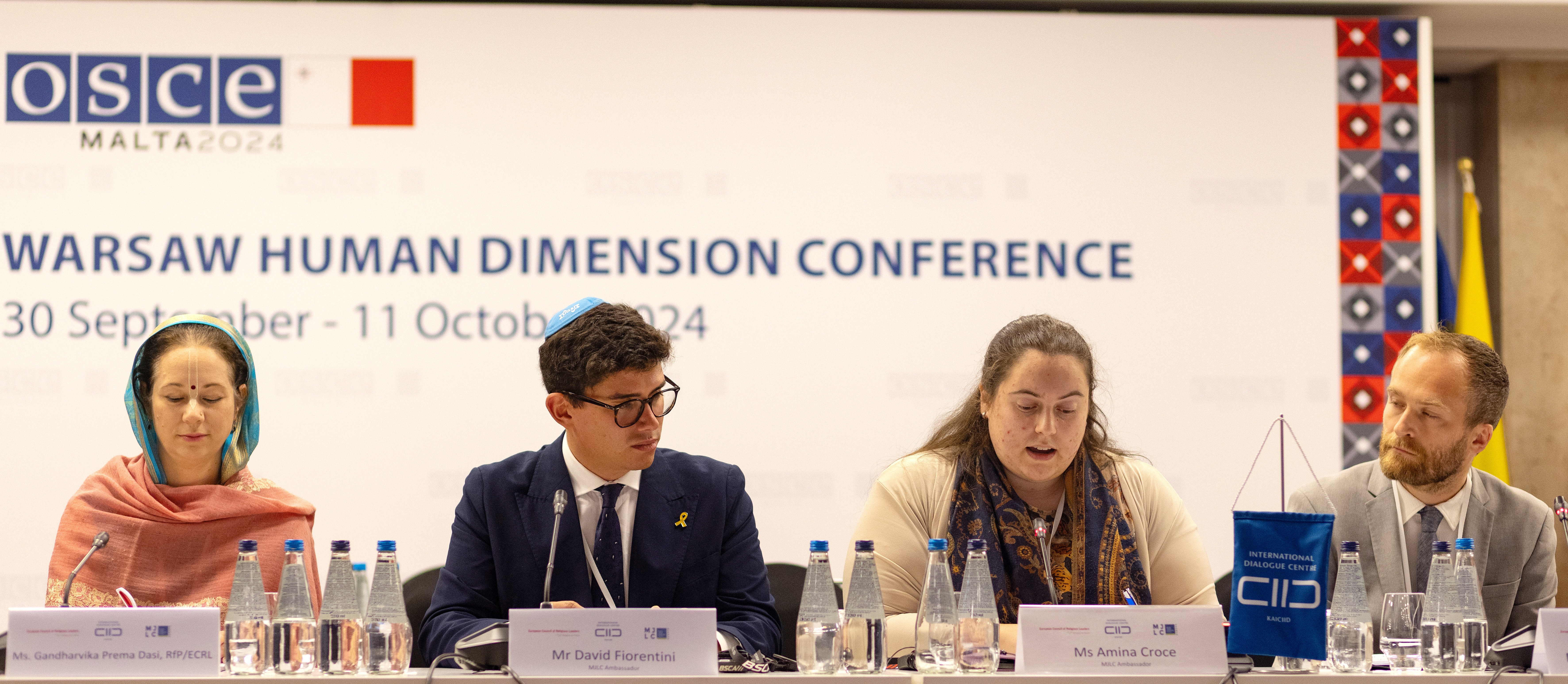
Amina Croce, who coordinates the Youth Section of the Italian Muslim community COREIS, and David Fiorentini, Policy Officer at the Italian Union of Jewish Students and Young Professionals (UGEI), took us on a journey through their shared commitment to building a common space—an interfaith space where they work together not in spite of, but because of, their Muslim and Jewish identities. At a time when religion seems to be at the heart of fragmentation and division, their message of hope resonated powerfully in the OSCE conference plenary room, where since 1992, the 57 Ambassadors of the OSCE participating States have been discussing human rights violations, discrimination of minorities, and freedom of religion or belief.
The two young Jewish and Muslim leaders conveyed their messages of reconciliation not only as individuals but as part of the "Ambassadors Programme of the Muslim-Jewish Leadership Council" (MJLC); a trust-building KAICIID-supported platform engaging 23 Imams and 23 Rabbis in Europe. Together with the Ambassadors Programme, this initiative aims to dispel prejudices, convey a united message against antisemitism and anti-Muslim hatred, and reaffirm a joint commitment to rights-based and cohesive societies in Europe. Particularly in a year where Muslim-Jewish dialogue has been challenged, the young people's continued commitment to listen to each other in the Ambassadors Programme provides a strong symbol of hope.
Reflecting on the current context during the conversation, David spoke of the need to "find ways to still be able to talk to each other respectfully, to find some common ground where we are still able to live peacefully across Italy in our case, and because especially when we talk about dialogue, this is a real moment where its strength has to be highlighted."
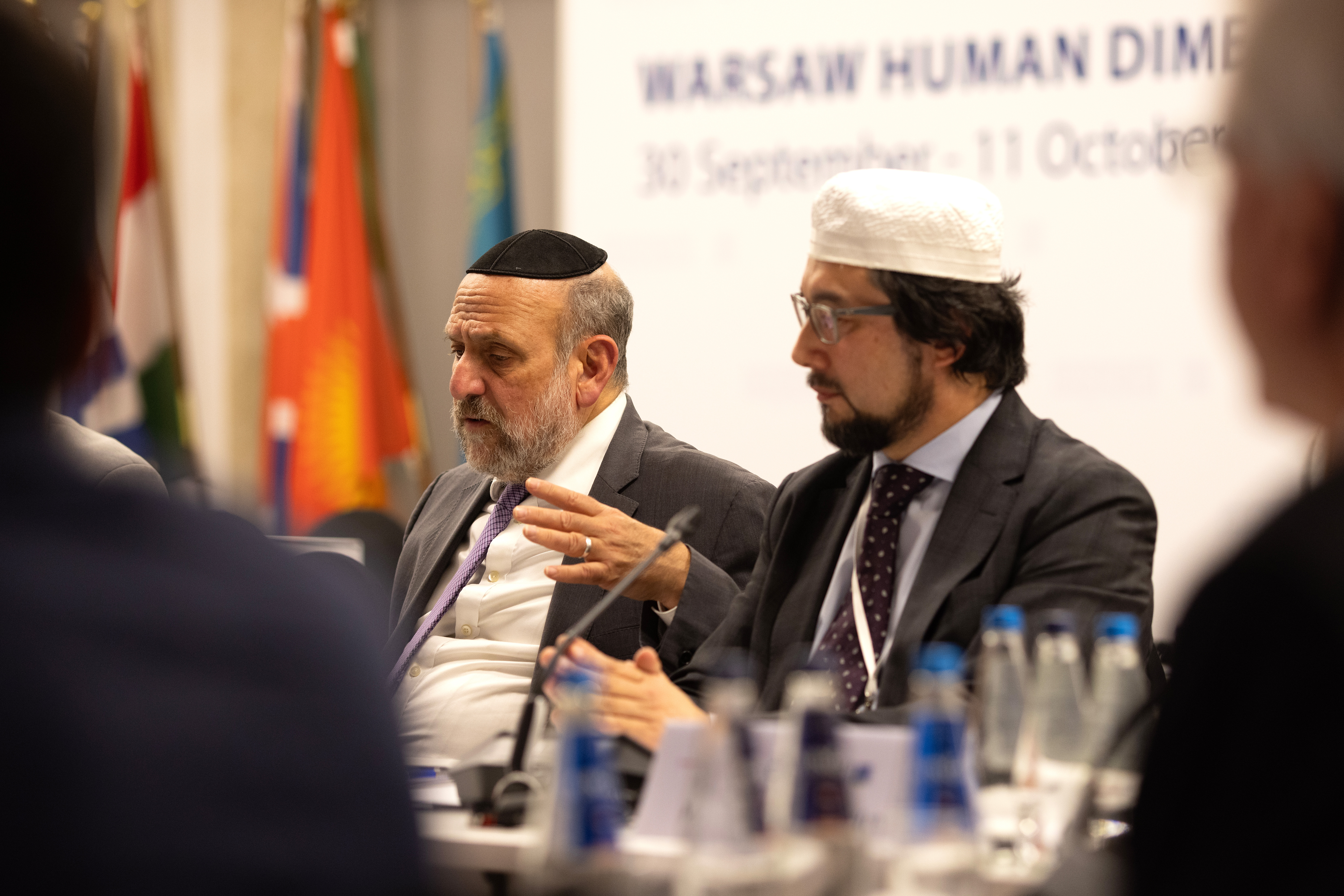
Amina and David’s interventions were accompanied by the supportive voices of two of the MJLC's religious leaders acting as mentors on the Ambassadors Programme, Imam Yahya Pallavicini and Chief Rabbi Michael Schudrich, who highlighted the need for listening across generations.
The MJLC Ambassadors brought a breath of fresh air to the often-somber discussions about the protection of human rights in the Euro-Atlantic and Eurasian spaces, particularly during these times of intersecting crises. Their story is a testament to the power of youth to reshape dialogue, bridge divides, and forge a new narrative of unity and understanding amidst global challenges, an embodiment of the principles of the UN Youth, Peace, and Security Agenda.

